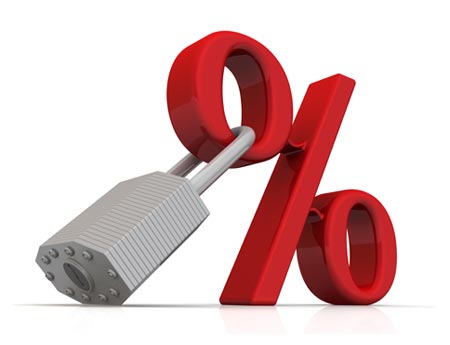Is It Time to Lock Into a Fixed-Rate Mortgage?
One of the most agonizing decisions homeowners make is whether to go for fixed or variable Mortgage. The decision could end up costing – or saving – big bucks on what is often the single biggest purchase many will make. Research shows that, in the past, a variable-rate mortgage has been cheaper than a fixed-rate one. But today’s market is different from decades past in two big ways.
The spread between fixed and variable rates is extremely low by historical standards. And we can no longer rely on a long-term downtrend in rates. Given that, the historical advantage of a variable is less applicable today.
Since rates only have one way to move – up – a lot of people are now wondering if they should lock into a fixed rate mortgage. Is it a good idea? Probably, but it depends. Here are four things to consider before locking into a fixed rate mortgage.
What does a Fixed Rate mean?
The interest rate on a fixed rate mortgage stays the same throughout the life of the loan. Typically, the standard for fixed-rate loans is the 5 years fixed rate loan although you can choose to go as long as 10 years in some cases. You can also find fixed-rate loans with shorter pay-off periods. When loan periods are shorter, you will have higher monthly payments, but slightly lower interest.
When are Fixed Rate Loans better?
The advantage of the fixed rate mortgage is that the payment is the same each month. This is important especially when interest rates are unpredictable. When interest rates rise, people with adjustable rate mortgages are faced with increasing monthly mortgage payments.
A fixed-rate loan means you will always know how much your home payment will be each month, regardless of what is happening with the economy or current interest rates.
What’s the downside of Fixed Rate Loans?
The disadvantage is that the interest is generally a little higher than an adjustable rate. With a fixed-rate loan, you’ll always pay the same amount of interest. That is great when interest rates are climbing, but if they drop below your interest rate, you will continue paying the higher amount of interest. Of course, you can always refinance a fixed-rate loan in order to get down to the best-fixed rate mortgage but this may not always be an option.
Over the life of your fixed-rate loan, you will pay a substantial amount of interest. In fact, you will probably pay hundreds of thousands of dollars in interest. There are ways to manage your mortgage so that it is an investment that works for you, and you can do this by talking to a mortgage specialist.
Should you have a Fixed Rate Mortgage?
You should discuss your particular situation with a talented mortgage specialist. Generally, you'll find that fixed rate mortgages are the right choice if:
• You think interest rates are low
• You can afford the payment for the house you want
• You need to budget for and predict monthly payments
• You will keep your home for a relatively long period of time
The best-fixed rate mortgage works for you and your lifestyle. If you'd like the peace of mind that comes with a stable interest-rate payment, then a fixed-rate mortgage may be the ideal choice. Borrowers often choose fixed-rate mortgages when interest rates are low and are expected to rise.

